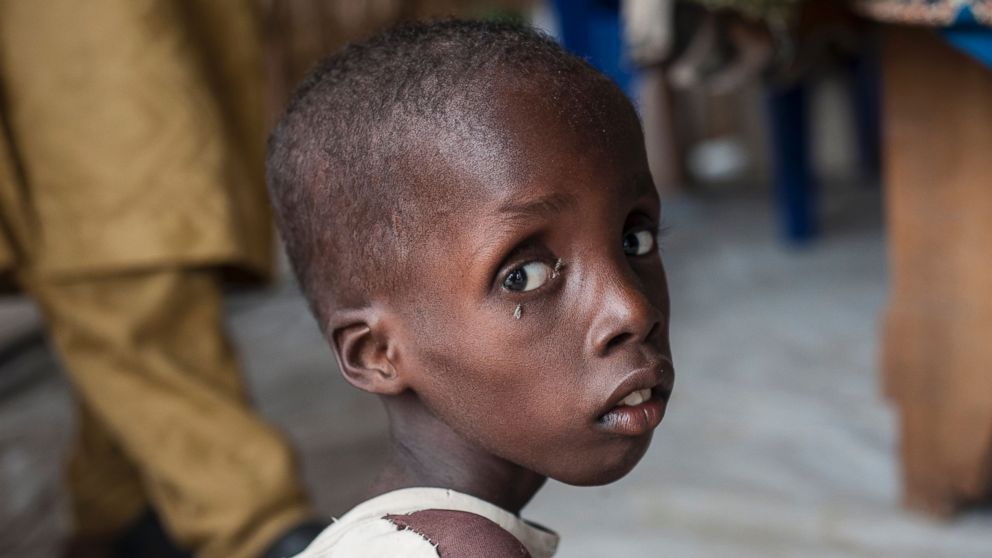UNICEF: 134 Nigerian Children Could Die Every Day From Malnutrition Without Aid
About a quarter million children are severely malnourished, many refugees.

— -- An estimated quarter of a million children in northeast Nigeria’s Borno state are severely malnourished and many are facing death, the United Nations Children’s Fund warned.
Since launching its brutal insurgency in the region seven years ago, Islamic militant group Boko Haram has devastated entire villages and communities in northeast Nigeria. But the scale of the crisis is only coming to light as more areas in the region that were once under Boko Haram’s control become reachable to humanitarian access.
UNICEF now estimates that out of the 244,000 children suffering from severe acute malnutrition in Borno state, some 49,000 will die this year if they do not receive treatment.
“Some 134 children on average will die every day from causes linked to acute malnutrition if the response is not scaled up quickly," Manuel Fontaine, UNICEF Regional Director for Western and Central Africa who just returned from Borno state, said in a statement Monday. "We need all partners and donors to step forward to prevent any more children from dying. No one can take on a crisis of this scale alone."
While visiting newly accessible sites in the besieged state, Fontaine said he saw destroyed towns accommodating internally displaced people (IDP) with thousands of frail children and little access to adequate food, water or sanitation.
"There are two million people we are still not able to reach in Borno state, which means that the true scope of this crisis has yet to be revealed to the world,” Fontaine said. "There are organizations on the ground doing great work, but none of us are able to work at the scale and quality that we need. We must all scale up."
Borno state Gov. Kashim Shettima said that 60 to 75 percent of children in displacement camps are orphans.
“In Maiduguri alone, we have 51,000 widows and about 49,000 orphans in the 17 IDP camps and only God know the population of widows and orphans in Borno state as a result of this insurgency because just last week we received about 25,000 IDPs in Ngala who were rescued from some newly liberated areas," Shettima told reporters last week.
Emmanual Ogebe, an international human rights lawyer and Nigeria expert in Washington, D.C., said his home country is struggling to feed IDPs as food earmarked for the camps are allegedly diverted by government officials. There have been various reports in local Nigerian newspapers of the continuous disappearance of food items.
“Corruption that directly leads to the deaths of citizens such as the looting of food meant for victims of Boko Haram is not being seen to be tackled, though urgently needed to mitigate daily deaths in the camps that are greater than terror casualties,” Ogebe told ABC News.
Ogebe, who is also the international director for Education Must Continue Initiative, said the Nigerian nongovernmental organization is working to deliver a relief shipment for malnourished IDPs, which has been stuck at a port for weeks in Lagos, southern Nigeria.
The Nigerian military has made significant progress in the fight against Boko Haram in the past year by recapturing most of the militant-held territories. The group, which seeks to overthrow the Nigerian government and establish an Islamic state, has retreated into the vast, dense Sambisa forest and the mountainous border regions between Nigeria, Niger, Chad and Cameroon. But even from there, it continues to launch attacks on border towns and nearby soft-targets like crowded marketplaces.
“Fortunately, much territory has been recovered, thousands rescued and relief workers better able to access hitherto inaccessible regions,” Ogebe said, reflecting on the past year. “Sadly, hundreds are dying in some IDP camps.”
ABC News’ James Bwala contributed to this report.



